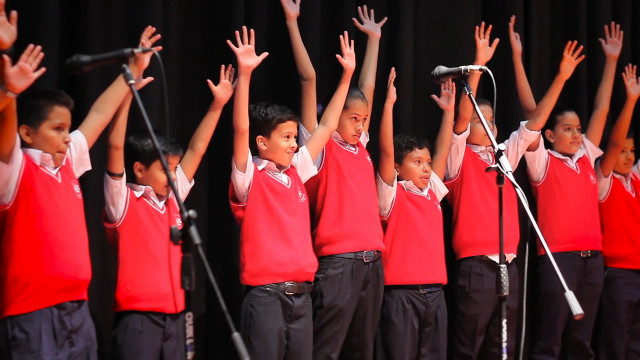When schools face budget cuts, art and music programs are usually the first to be scaled back or eliminated, even as many argue that music has academic benefits and improves cognitive abilities.
According to Northwestern University researchers, students who experience musical education are able to improve their memory and enhance their critical thinking skills. Another study from the University of California, Los Angeles found that music stimulates the area of the brain that affects reasoning and problem-solving, particularly in math, science, engineering and architecture.
In our Urban Voices segment this week, we interview Raul Cabrera. A music teacher in Venezuela who is changing lives with the Venezuela Children’s Choir. Cabrera believes music has social and behavioral benefits too.

In 1962, Raul Cabrera created the choir which helps students learn discipline and determination through music.
Marimar Gutierrez said being in the choir helped her solve problems instead getting into fights in school.
“To me, this choir is solidarity, love, friendship. The choir has changed my whole life. If I hadn’t joined the choir I would be a street girl,” Gutierrez said.
Private tutoring is costly and unattainable to most children in Caracas, Venezuela. The choir is free for students and is funded by donations. Cabrera has also created a system that allows the students to tutor each other in music.
 CGTN America
CGTN America
